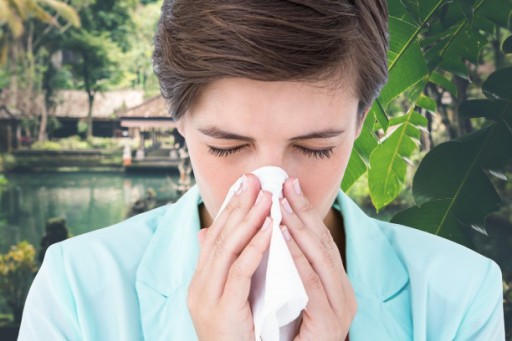Have you ever noticed that your allergies seem to worsen when the weather changes? If so, you’re not alone. Many allergy sufferers experience an increase in symptoms when exposed to certain environmental factors. From pollen levels to air quality, the changing of seasons, and other environmental factors, there is a direct link between weather and allergies.
In this article, we’ll explore the various ways in which weather can affect allergy sufferers, from potential triggers to ways to reduce symptoms. We’ll also discuss how to identify weather-related triggers and how to take steps to avoid them.
What are the Most Common Triggers for Allergies?
There are numerous environmental factors that can trigger allergies and worsen your symptoms. Here are some of the most common triggers:

- Pollen– Pollen is one of the primary triggers for allergies, and its levels can change dramatically depending on the season, weather conditions, and location. On days when pollen counts are high, avoid going outside if possible—especially in the morning hours, when pollen levels tend to be higher.
- Air Quality– When air quality is poor, it can worsen your allergies. Pollutants like smoke, dust, and pollen can irritate the eyes and lungs of allergy sufferers. It’s best to stay inside when air quality is low or moderate—especially if you have seasonal or year-round allergies.
- Temperature Changes– Temperature changes can also affect your allergies. Colder temperatures tend to worsen seasonal allergies, while hotter days can cause increased pollen counts and air quality issues.
- Humidity– High levels of humidity can create the perfect environment for allergens like dust mites and mold to thrive. Allergy sufferers should be aware of the local humidity levels and take the necessary precautions to reduce their exposure.
How can Seasonal Allergy Sufferers Manage their Symptoms?
For seasonal allergy sufferers, managing your symptoms is key. Here are a few tips for managing seasonal allergies:
- Keep an eye on local pollen counts and air quality levels so you know when it’s best to stay indoors or limit outdoor activities.
- Wear a mask when going outside, to help reduce your contact with pollen and other allergens.
- Take allergy medications as prescribed by your doctor—including seasonal allergy treatments like antihistamines, nasal sprays, and decongestants.
- Keep windows closed during peak pollen seasons, and reduce your exposure to outdoor allergens by avoiding outdoor activities during peak times.
- Consider investing in an air purifier for your home, which can help filter out allergens that might be contributing to your symptoms.
By following these steps, you can reduce your risk of experiencing allergy symptoms when the weather changes.
How to identify weather-related triggers
If you’re having difficulty managing your allergies, it’s important to identify any potential weather-related triggers. Here are a few tips to help you spot potential triggers:
- Pay attention to the weather. If you notice your allergy symptoms worsening after a sudden change in temperature or humidity, for example, it could be a sign that these are triggers for your allergies.
- As much as possible, avoid activities that could expose you to allergens. Pay attention to local pollen counts and air quality warnings.
- Consider tracking your symptoms with a journal or allergy-tracking app. This can help you identify patterns in your allergy triggers—including any related to the weather.
- Talk to your doctor. Your doctor can help you identify any weather-related triggers, as well as provide advice on how to best manage your symptoms.
By being aware of the potential triggers for your allergies, you can take steps to reduce your exposure and limit your risk of experiencing allergy symptoms when the weather changes.
Now that you know the connection between weather and allergies, you can better manage your symptoms and be prepared for any potential triggers. The key is to be aware of the weather and take steps to reduce your exposure. With a little knowledge and some proactive steps, you can enjoy the changing seasons without having to suffer from allergies. Do you have any questions? Feel free to reach out. We’re happy to help.
Read More: Iceland Weather by Month Explained
